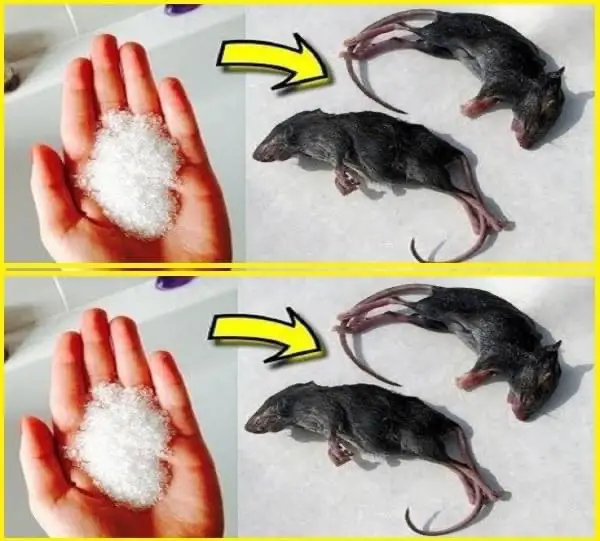12 Clever Ways to Prevent Rats and Mice from Entering Your House
Keeping rats and mice out of your house is crucial for maintaining a clean, healthy, and comfortable living environment. These pests not only cause structural damage to your home but also pose significant health risks by spreading diseases. Fortunately, there are several effective strategies you can implement to prevent rats and mice from entering your house. This comprehensive guide will provide you with practical tips and preventive measures to keep these unwanted guests at bay.
Understanding the Problem
Before diving into the prevention methods, it’s important to understand why rats and mice are attracted to homes and what makes them such persistent pests.
Why Rats and Mice Enter Homes
Rats and mice are attracted to homes primarily in search of food, water, and shelter. During colder months, the warmth of a house becomes an additional lure. Understanding these motivations can help you address the root causes of infestations.
Dangers Posed by Rats and Mice
These rodents can cause extensive damage by gnawing on electrical wires, insulation, and even structural elements. Moreover, they can contaminate food and surfaces with their droppings, leading to serious health issues like salmonella and hantavirus.
Effective Strategies to Prevent Rats and Mice
Implementing a combination of these strategies will provide the best protection against rodent infestations.
1. Seal Entry Points
Rats and mice can squeeze through surprisingly small openings. Inspect your home for any gaps or holes and seal them with materials like steel wool, caulk, or hardware cloth.
Tip: Pay special attention to areas around doors, windows, vents, and utility pipes.
2. Keep Your Home Clean
A clean home is less attractive to rodents. Regularly clean up crumbs and spills, and store food in airtight containers. Don’t forget to clean under appliances and furniture where crumbs can accumulate.
Tip: Create a cleaning schedule to ensure no area is overlooked.
3. Secure Garbage Bins
Rodents are often attracted to the smell of garbage. Use bins with tight-fitting lids and ensure they are always closed properly. Store garbage bins away from your house if possible.
4. Maintain Your Yard
Overgrown vegetation and clutter can provide shelter and nesting sites for rodents. Keep your yard well-maintained by regularly mowing the lawn, trimming bushes, and removing debris.
Tip: Store firewood and other materials at least 20 feet from your house and 5 feet off the ground.
5. Eliminate Moisture Sources
Rodents need water to survive, so eliminating moisture sources can make your home less appealing. Fix any leaks in plumbing, roof, or foundation and ensure proper drainage around your home.
6. Use Natural Deterrents
Certain smells can repel rats and mice. Peppermint oil, ammonia, and vinegar are known to be effective natural deterrents. Soak cotton balls in these substances and place them around entry points and suspected nesting areas.
Tip: Refresh these deterrents regularly as their potency can diminish over time.
7. Install Rodent-Proof Barriers
Installing rodent-proof barriers, such as door sweeps and chimney caps, can prevent rodents from entering your home through common entry points. Ensure these barriers are made of materials that rodents cannot chew through.
8. Keep Pet Food Secure
Pet food can be a major attractant for rodents. Store pet food in sealed containers and avoid leaving pet food out overnight.
9. Set Traps
Setting traps is an effective way to catch rodents that have already entered your home. There are various types of traps available, including snap traps, glue traps, and electronic traps.
Tip: Use traps with caution if you have pets or small children to prevent accidental injury.
10. Use Rodenticides
Rodenticides can be effective but should be used with extreme caution due to their toxicity. Always follow the manufacturer’s instructions and consider professional assistance if needed.
11. Keep Attics and Basements Dry
Attics and basements are common entry points and nesting areas for rodents. Ensure these areas are well-ventilated and dry. Consider using a dehumidifier if necessary.
12. Regular Inspections
Regularly inspect your home for signs of rodent activity, such as droppings, gnaw marks, and nests. Early detection can help you address an infestation before it becomes severe.
Tip: Keep a checklist of areas to inspect to ensure nothing is missed.
FAQs
What are the signs of a rodent infestation?
Common signs include droppings, gnaw marks, nests made of shredded materials, and unusual noises such as scratching or scurrying, especially at night.
How can I tell if the entry points are sealed properly?
Check for drafts and light coming through gaps. You can also sprinkle flour around suspected entry points and check for tracks.
Are natural deterrents as effective as chemical ones?
Natural deterrents can be effective for prevention but may not work as well in severe infestations. They are best used in conjunction with other methods.
How often should I inspect my home for rodent activity?
Inspect your home at least once a month, focusing on areas where food is stored, and entry points like basements, attics, and garages.
Is it necessary to hire a professional pest control service?
If you have a severe infestation or are unable to control the problem with DIY methods, it is advisable to hire a professional pest control service. They have the expertise and equipment to effectively address the issue.
Conclusion
Preventing rats and mice from entering your home requires diligence and a combination of methods. By sealing entry points, maintaining cleanliness, and using natural and chemical deterrents, you can protect your home from these destructive pests. Regular inspections and prompt action at the first sign of infestation are key to keeping your home rodent-free. Implement these strategies today to safeguard your home and health.

